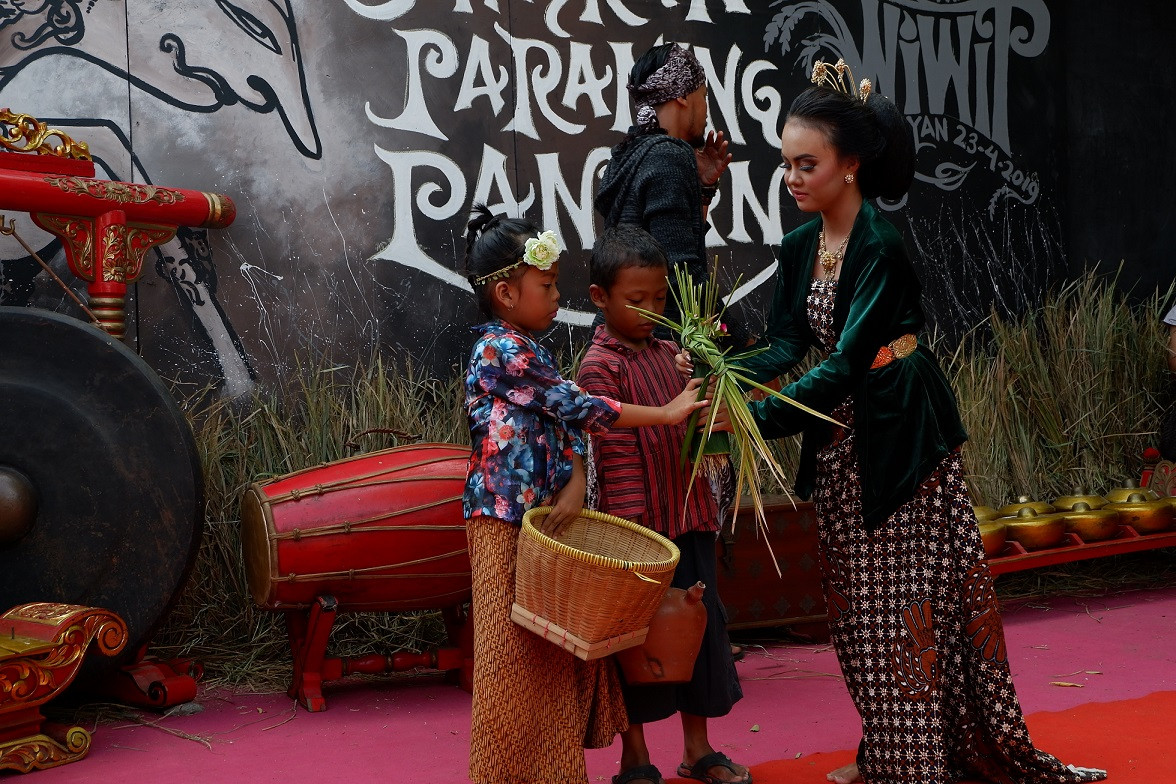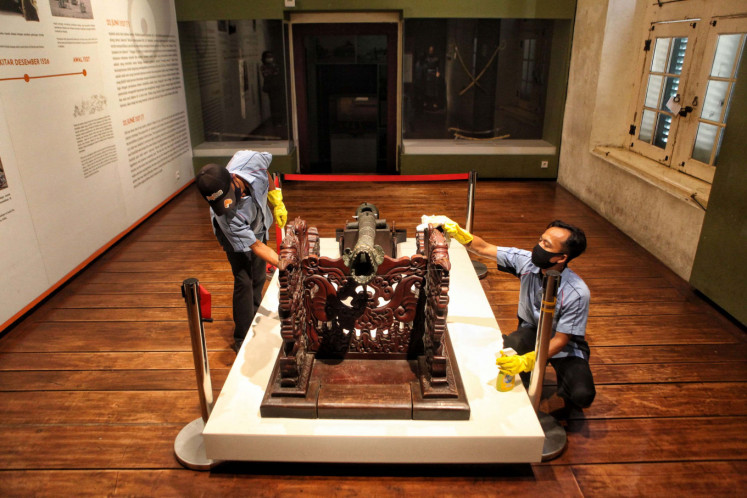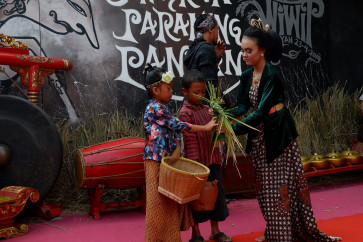Village in Yogyakarta gives new meaning to Wiwitan ritual
The Wiwitan ritual in Ngestiharjo village in Bantul, Yogyakarta, does more than just reliving the centuries-old tradition.
Change text size
Gift Premium Articles
to Anyone
 Goddess on Earth: The Wiwitan ritual involves two children and a teenage girl who dresses as Dewi Sri – the goddess of rice and fertility in Javanese mythology. (JP/A. Kurniawan Ulung)
Goddess on Earth: The Wiwitan ritual involves two children and a teenage girl who dresses as Dewi Sri – the goddess of rice and fertility in Javanese mythology. (JP/A. Kurniawan Ulung)
B
efore Islam arrived in the archipelago in the 9th century, farmers on Java performed the Wiwitan ritual to thank Dewi Sri for blessing them with a successful harvest.
In Javanese mythology, Wiwitan is carried out to maintain human relationships with God, as well as maintain the rice field. The tradition of Wiwitan takes the old rice to be kept for use in the planting season.
The forgotten tradition has been revived again by Sanggar Anak Alam (SALAM), a learning community established by Sri Wahyaningsih and her husband, Toto Rahardjo, in June 2000 in Ngestiharjo village in Bantul regency, Yogyakarta.
More than just a thanksgiving celebration, SALAM’s version of the Wiwitan ritual signifies the farmers’ hope for a better future.
“Today, our farmers are not as skillful as our farmers used to be in the olden days. Now, our farmers depend on factories to get rice seeds,” Sri said.
“Through this ritual, we hope that our farmers will be able to produce rice seeds on their own.“
Clad in traditional attire, dozens of Ngestiharjo residents gathered on the afternoon of April 23 to start the ritual.

















